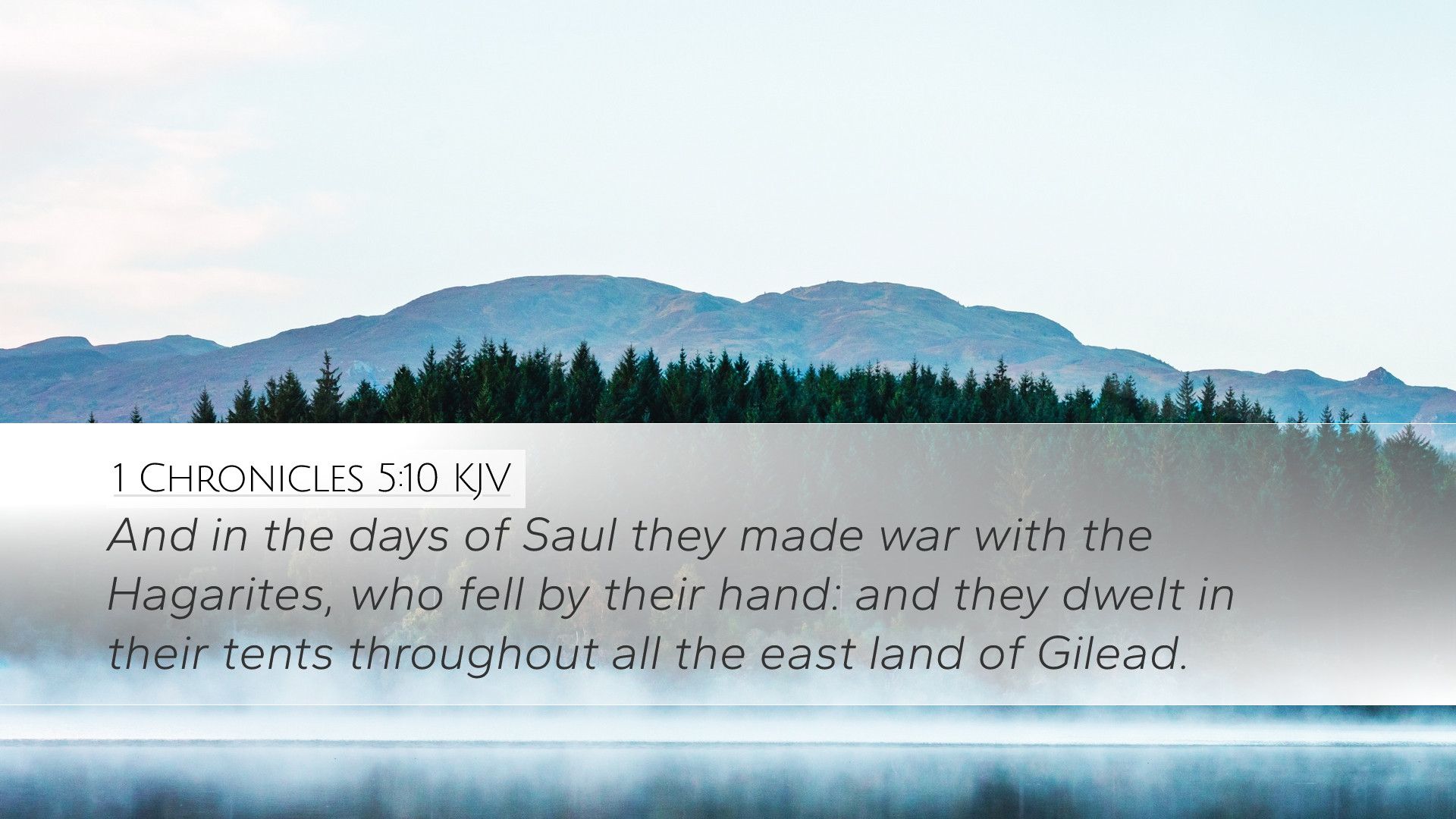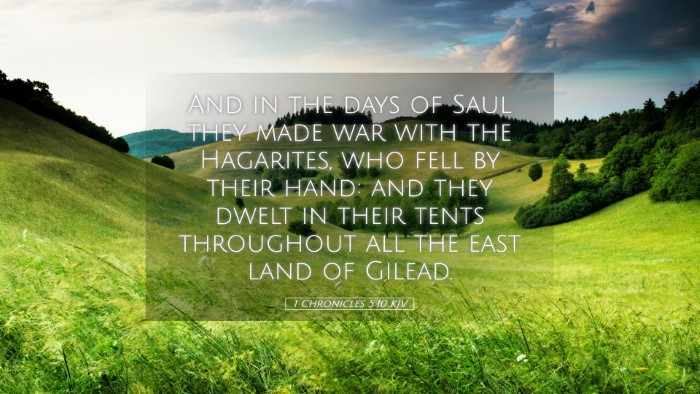Bible Commentary on 1 Chronicles 5:10
Verse: "And in the days of Saul they made war with the Hagarites, who fell by their hand: and they dwelt in their tents throughout all the east country of Gilead."
Introduction
The text of 1 Chronicles 5:10 provides a brief account of the military engagement of the people of Israel with the Hagarites during the reign of King Saul. This commentary draws from classical biblical exegesis, offering insights from prominent public domain commentaries including those of Matthew Henry, Albert Barnes, and Adam Clarke. This synthesis seeks to uncover the theological significance of this passage as well as its historical context.
Historical Context
The Hagarites, mentioned here, are often considered descendants of Hagar, the Egyptian maidservant of Sarah. The mention of their conflict with Israel signifies the ongoing struggles between the Israelites and various tribes throughout their history. Henry notes that these skirmishes were indicative of the larger theme of Israel's struggle against their enemies which is a recurring motif within the Old Testament.
Military Engagement
The phrase "made war with the Hagarites" indicates a proactive military effort by the Israelites rather than a defensive posture. Albert Barnes emphasizes that these conflicts were not merely for territorial gain but were also about maintaining the purity of worship and tribal identity amidst adversarial nations.
The Role of Saul
King Saul's leadership contextually anchors this event. Adam Clarke draws attention to Saul's position as the first king of Israel, a pivotal moment in the nation's history. He relates these military exploits to Saul's broader efforts in unifying the tribes and consolidating power against external threats.
Spiritual Significance
There are profound spiritual lessons in this passage, especially concerning faith and divine assistance in times of conflict. The victories over the Hagarites are illustrative of God's providence and support in the face of hostility.
Theological Reflection
Matthew Henry reflects on how the physical conflicts faced by Israel can mirror the spiritual battles believers face today. Just as Israel relied on God for their victories, Christians are called to rely on divine strength against spiritual adversaries. The Hagarites, in a metaphorical sense, represent the challenges that believers may encounter in their faith journey.
The Notion of Identity
The conflict also speaks to the theme of identity—a defining aspect for both the Israelites and the Hagarites. Barnes posits that warfare in this context serves to establish Israel's rightful place within the divine narrative. It was a struggle not just for land but for acknowledgment of their covenantal relationship with God.
Conclusion
1 Chronicles 5:10 encapsulates significant historical, theological, and spiritual insights that are ripe for contemporary reflection. The military engagements during Saul's reign set the stage for understanding Israel's identity and the divine support afforded to them in their struggles. As pastors, theologians, and students engage with this text, it serves as a reminder of both the physical and spiritual battles present in the life of faith.
Key Takeaways
- The historical significance of Israel's conflict with the Hagarites during King Saul's reign.
- The importance of divine assistance in military and spiritual struggles.
- The identity and covenant relationship of Israel as God’s chosen people amidst adversities.
- The relevance of the passage for understanding modern spiritual conflicts.


